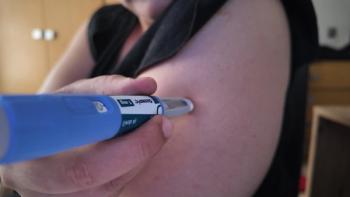
Triage Care Management Tool Associated with 8% Hospital Avoidance
A Texas study revealed that the implementation of electronic patient management solutions resulted in reduced call back times for symptom-related calls as well as reduced hospitalizations.
The implementation of electronic patient management solutions at a community oncology practice was associated with an 8% hospital avoidance for symptom-related incidents, according to a collaborative research effort between Texas Oncology and Navigating Cancer presented at the 2021 American Society of Clinical Oncology (ASCO) Annual Meeting.
Through the use of Navigating Cancer’s triage care management tool, call-back times, particularly for symptom-related calls, were markedly reduced.
Researchers hope that the utilization of this technology can result in a meaningful reduction in hospitalization and emergency department (ED) visits by allowing nurses and health care professionals to communicate with patients in a timelier manner.
The study, which started in the fourth quarter of 2019 and continued until December 2020, showed that the electronic dashboard had a positive impact in reducing call back times. Pre-implementation call-back times started at 3.2 hours for all incidents and 2.3 hours for symptom-related incidents. By December 2020, resolution times had improved to 2.2 hours for all incidents and 1.5 hours for symptom-related incidents.
These findings are important because the preliminary data suggests that managing symptoms in a timely fashion will lower overall ED visits and hospitalizations. “Patients routinely complained that, if they called our clinics, their calls were not answered quickly,” explained lead study author Lalan Wilfong, MD, Texas Oncology, at the virtual conference. “We hypothesized that we needed a better system of managing patient phone calls so that we could get them in our offices and take care of them, rather than them having to go to the emergency room.”
The Care Management Tool allowed documentation of all inbound patient calls and incidents, which were then made visible to the entire care team. Patients could easily input answers to questions regarding their symptoms and medication compliance. Calls with high risk-symptoms, such as fevers of 102 degrees, were flagged as needing to be prioritized.
Automated task assignments helped to streamline care coordination so that nurses were able to reach patients in an appropriate and timely fashion. After a nurse has called a patient back, they then resolve the call with documentation. Furthermore, the symptom management pathways established consistency across clinics and their systems of triaging, managing, and documenting symptoms and adverse events.
By the conclusion of 2020, the research team was successfully able to not only return all calls but resolve them within a 2-hour time frame. Return times for symptom-related calls improved to under 90 minutes, at 1.4 hours, and 60% of symptom-related calls were managed within the hour. The majority of symptom-related incidents were therefore being taken care of in less than an hour.
“We hope that this has significant effects on reducing our hospitalization and ED visits for our patient population by simply taking care of them quickly, and answering the phone, and resolving their calls in a timely fashion,” said Wilfong.
Future efforts will include finding ways to continue improving the reduction in call-back times with the intention of having all symptom-related calls attended to under an hour. Team research objectives will involve evaluating whether the implementation of the electronic patient management technology successfully lowers hospitalization and ED visits as well as conducting surveys to determine whether the use of such technology results in higher patient satisfaction.
Reference
Wilfong L, Patel A, Ortega L, et al. Improvement in incident resolution time with implementation of electronic patient management solution at a community oncology practice. J Clin Oncol. 2021;39:15 (abstract 1578).
Newsletter
Knowledge is power. Don’t miss the most recent breakthroughs in cancer care.

































